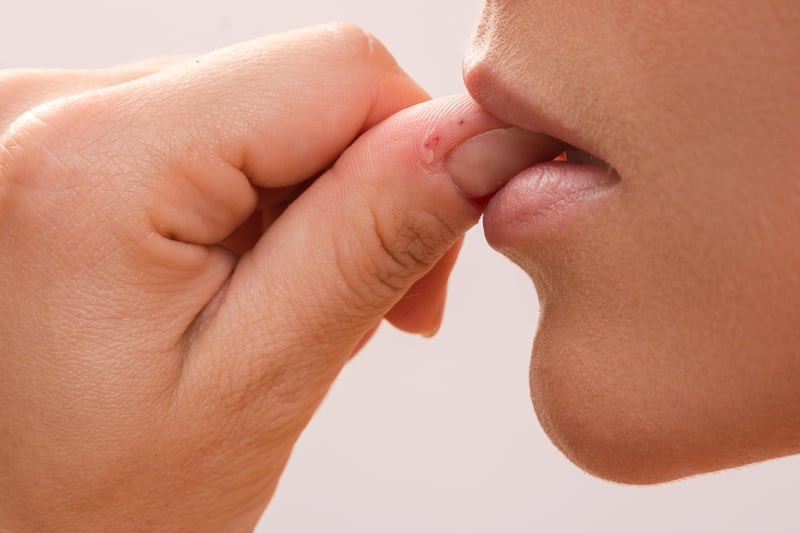Get Healthy!
Results for search "Obsessive-Compulsive Disorders".
Health News Results - 7
If you just can't stop biting your nails, picking at your skin or pulling out a hank of hair, especially when you're stressed out, here's something to try that just might work.
Instead of nibbling, picking or pulling, simply touch your skin gently, such as by lightly rubbing the fingertips, palm or back of arm, at least twice a day.
That strategy, called "habit replacement," helped ...
- Cara Murez HealthDay Reporter
- |
- July 20, 2023
- |
- Full Page
California psychiatrist Dr. Carolyn Rodriguez once had a patient with obsessive-compulsive disorder (OCD) who washed his hands so often that he had to wear gloves to cover his cracked and swollen skin.
"People with intrusive thoughts of contamination can do this for hours on end with scalding hot water,"said Ro...
- Sarah D. Collins HealthDay Reporter
- |
- June 30, 2023
- |
- Full Page
Preteens who spend much of their free time watching online videos or playing video games may have a heightened risk of developing obsessive compulsive disorder (OCD), a new study suggests.
Researchers found that among 9,200 9- and 10-year-olds they assessed, the odds of developing OCD inched up ...
- Amy Norton HealthDay Reporter
- |
- December 22, 2022
- |
- Full Page
When traditional treatments fail to help patients with severe obsessive-compulsive disorder (OCD), an implant that zaps the brain with electrical pulses just might, a new research review shows.
It found that the remedy -- known as "deep brain stimulation,...
- Alan Mozes HealthDay Reporter
- |
- September 22, 2022
- |
- Full Page
Many people who get a diagnosis for one mental illness may find they have additional psychiatric conditions, and new genetic research offers an explanation why.
A number of mental illnesses share genetic similarities, researchers found. This discovery helps explain why multiple conditions are common among people with psychiatric disorders, the investigators pointed out in a new study.
...- By Robert Preidt HealthDay Reporter
- |
- May 16, 2022
- |
- Full Page
There is no increased risk of mental health problems in teens and young adults who were conceived through in-vitro fertilization (IVF), Swedish researchers report.
Although those born after assisted reproductive techniques did have a slightly higher risk of obsessive-compulsive disorder (OCD), it owed to parental background factors, they said.
Since 1978, more than 9 million childre...
- Robert Preidt
- |
- December 21, 2021
- |
- Full Page
Parents frazzled by their little ones' finicky food choices often sigh in exasperation, thinking: "They'll grow out of it by college."
Maybe not, suggests a new study from Bowling Green State University in Ohio. Some young people continue their picky eating into early adulthood, often restricting their diets to 10 foods or even fewer.
Such a limited diet can mean they're not getting...
- Cara Murez HealthDay Reporter
- |
- October 7, 2021
- |
- Full Page













